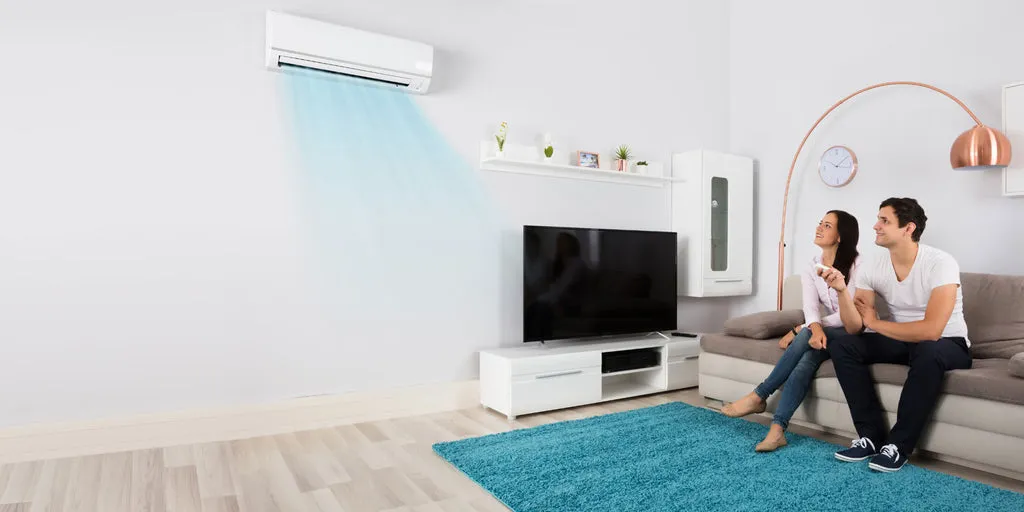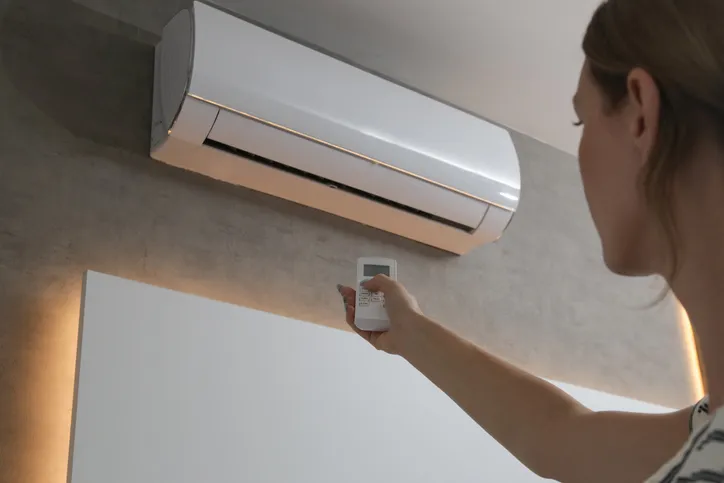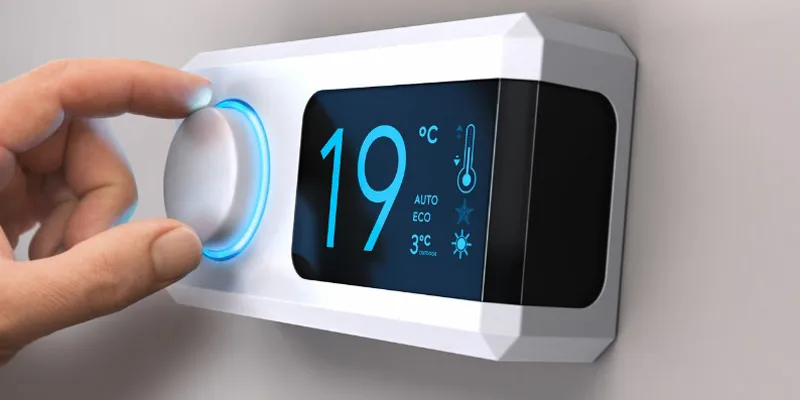Keeping your home cool during the sweltering summer months is essential for comfort and health, but it often raises the question: Is it economical to let the AC be on all day or all night? We are yet to find out.

Thus, comfort in conjunction with average energy consumption is the main goal that will improve the usage of air conditioning systems and reduce the consumption of electricity at the same time.
We will look at the question of whether it does actually help to keep your AC on, provide information on how to avoid these pitfalls, and set the record straight on some of the myths of AC use.
What Temperature Should I Keep My AC On to Save Money?
Controlling the temperature of your building to an ideal level is one of the easiest methods to cut expenses on air conditioning. According to energy specialists, the recommended central air conditioning temperature is 78F during warmer months when people are awake at home.
Some might be asking why 78 degrees? This temperature is deemed to be comfortable for the occupants with simultaneous regulation of energy use. At 78°F, your cooling system is optimal to minimize energy consumption.
The indoor conditions are friendly to most people, and with correct ventilation and ceiling fans, the cool air circulates.
In fact, the amount of energy used is a lot less than what is used at lower temperatures.
More Tips that Help Save Money at 78 Degrees:
- Use Ceiling Fans: Blowers fan air conditioning cool to varying temperatures of your desires; they assist in making you comfortable at higher temperatures.
- Close Blinds and Curtains: Shading off direct sun greatly decreases the level of heat that enters a house, thus making it easier for an AC to reach the desired temperature.
- Seal Leaks: Make sure that doors and windows are tight to avoid the cool air from coming out.
Even though 78 degrees is the optimum temperature for day use, you can take it slightly higher when you are out of the house or at night to reduce power consumption further.
How to Use Your Air Conditioner at the Lowest Cost

By learning how to keep the AC on while still saving money, you don’t have to compromise comfort. However, it’s not about the efficiency of a system but how that system is run.
That is the reason why every enhancement can result in a major cost reduction. A small increase in thermostat, be it of a single or two digits, can have a large impact on energy use.
Heat loss is also influenced by the difference in temperature between the indoors and outdoors, and this means that the closer the temperature indoors gets to the outdoors, the less your Air Conditioner is likely to consume energy.
Optimize Thermostat Usage
Programmable or smart safety means reducing temperature through a thermostat that is preprogrammed to adjust temperatures periodically. When you are at the office, turn the temperature up to 85 degrees, and when you are at home, reduce it by 8 degrees to 78.
Regular Maintenance
Most importantly, ensure that filters are clean or replaced monthly to enhance proper air circulation. Ensure your AC has an annual checkup to ensure that it’s working optimally.
Improve Home Insulation
Walls, the attic, and windows that are properly insulated can regulate the indoor climate with little assistance from the air conditioning system.
Use Zoned Cooling
Targeting the chosen portions of the house where people spend their time and energy most of the time. By doing so, not only will you save money but also ensure your air conditioning system has an increased service span.
Does Turning the AC On and Off Cost More?
Another misconception most of the time is that it is better to turn your air conditioning on and off repeatedly than to leave it on with the rationale that the latter wastes energy. This thought is a result of the perception that the system draws a large amount of power on start-up. However, this is not true.
Why Should One Turn It Off
Some people would prefer to know why they should have their AC off while they’re out. If you care to know, here are some reasons:
1. Energy Use Stops
AC means Air Conditioner, and when it is off, it doesn’t make use of any power in the house. That is, even if it must use a little extra power to come on, it uses far less power during the time it spends off.
2. Reduced Wear and Tear
They inevitably wear out unless you decide to do it occasionally; continuous use of the AC degrades its parts.
Such use helps in minimizing the overall stress on the system Since the storage options are not used as the main repository for data, they are not under immense pressure to provide for the storage needs of an organization or business all the time.
3. Customized Cooling
Although you must pay for your AC on a standby basis, turning the device off as you leave your home helps you avoid extra expenses when you don’t need the cool air.
Smart Tips for On-and-Off Usage

Adjust your home’s temperature effectively using a programmable thermostat that will switch on the AC at specific times of the day and other times turn it off.
Refrain from switching it off for brief moments; use the thermostat to raise it higher if you’ll only be out for a while.
Finally, the idea of switching off your AC whenever it is not needed can help you to reduce your bill without making you uncomfortable.
Is It Wise to Switch Off the AC at Night?
The concept of having to switch our air conditioner off at night may sound rather uncomfortable, but it can actually save us a bundle.
Research has shown that if your central air conditioning is programmed to shut down during the night, you are likely to save as much as 30% on your electricity bill.
If you also want to know why you should have your AC off, here are some vital reasons.
1. Cooler Night Temperatures
In many areas, they say that the temperatures continue to decrease when the sun goes down at night. Forcing air circulation is an effective solution to keeping your house cool without having to switch on the air conditioner.
2. Lower Humidity
In low humidity conditions, it becomes possible to use natural means of ventilating the structure for the comfort of the occupants.
3. Energy Savings
It shows noticeable savings as your electricity consumption is zero during that period because you’ve switched off your AC.
Tips for Staying Cool Without AC at Night:
- Use Fans: Ceiling or box fans should be sufficient if you don’t mind the temperature being on the cooler side.
- Open Windows Strategically: Open the windows when it is in the evening, then close the windows the next morning to contain the air inside that was cooler.
- Light Bedding: Choose non-sweat absorbent fabrics, especially for the sheets, and lightweight garments such as cotton for the blanket and bedsheets.
Final Thoughts
Does it cost less to be so fixated on the AC? Everything depends upon how you have maintained your air conditioning system.
However, if one is inclined to leave it on constantly for continuous comfort, then using smart approaches such as raising the thermostat, turning off the AC unit when it is not required, or opening windows at night to get a fresh breeze decreases the energy cost tremendously.
Just adjust your thermostat to the optimum setting of 78°F, maintain your AC system regularly, and make the necessary decisions with respect to usage of your AC.
You can make your home cool and comfortable without necessarily putting a huge hole in your pocket. It is high time you adopted these energy-saving practices if you want to see a difference on the bills you pay as well as the durability of your air conditioning system.





